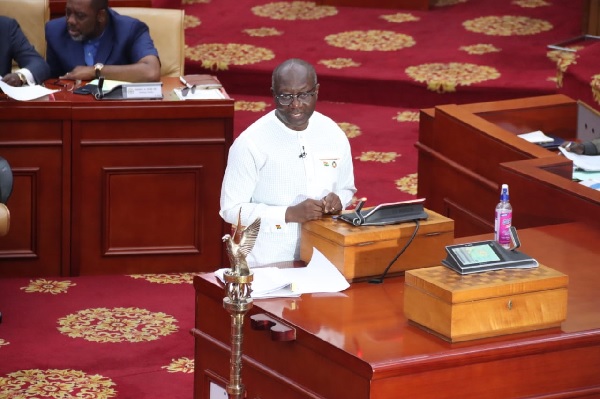
Monetary Sector outlook: Monetary policy in 2024 to regain price stability
Government expects monetary policy in 2024 and the medium-term to regain price stability.
Consequently, inflation is expected to remain within the International Monetary Fund (IMF) programme’s Monetary Policy Consultation Clause (MPCC) of 29.4 per cent, with a symmetric band of 4.0 per cent at the end of 2023, an end year target of 15 per cent in 2024.
Inflation for the month trended downwards in October to 35.2 per cent from 38.1 per cent the previous month, signalling a disinflation process in line with projections.
The Minister of Finance, Ken Ofori-Atta, said this when he laid the 2024 Budget and Government’s Fiscal Policy dubbed Nkunim (Victory) budget before Parliament yesterday.
According to him, inflation is expected to trend further down to the medium-term target band of 8±2 per cent by end-December 2025.
“A tight monetary policy stance, favourable base drifts, relative stability on the foreign exchange market, and a favourable food harvest are expected to outweigh inflationary pressures over the near-term,” he added.
The Bank of Ghana in its quest to see a reduction in inflation maintained the tight monetary policy stance to firm up the disinflation process. Among other measures, the Bank has further raised the monetary policy rate by a cumulative 300 basis points (bps) in the year to September 2023 to 30 percent.
External sector
The external sector’s performance, Mr Ofori-Atta said, would largely depend on the conclusion of negotiations with the country’s external creditors.
“Also, the Bank of Ghana’s policy thrust will remain focused on increasing external buffers through sustainable means.
The exchange rate is expected to remain stable supported by continued progress with the implementation of the IMF-Supported Programme, expected inflows from the cocoa syndication loan, the second tranche of IMF loan, mining inflows and the BoG’s continuation of the Gold-for-Oil Programme,” he said.
Risks
According to him, the main risks to the external outlook include increasing uncertainty about geopolitical tensions and volatility in commodity prices.